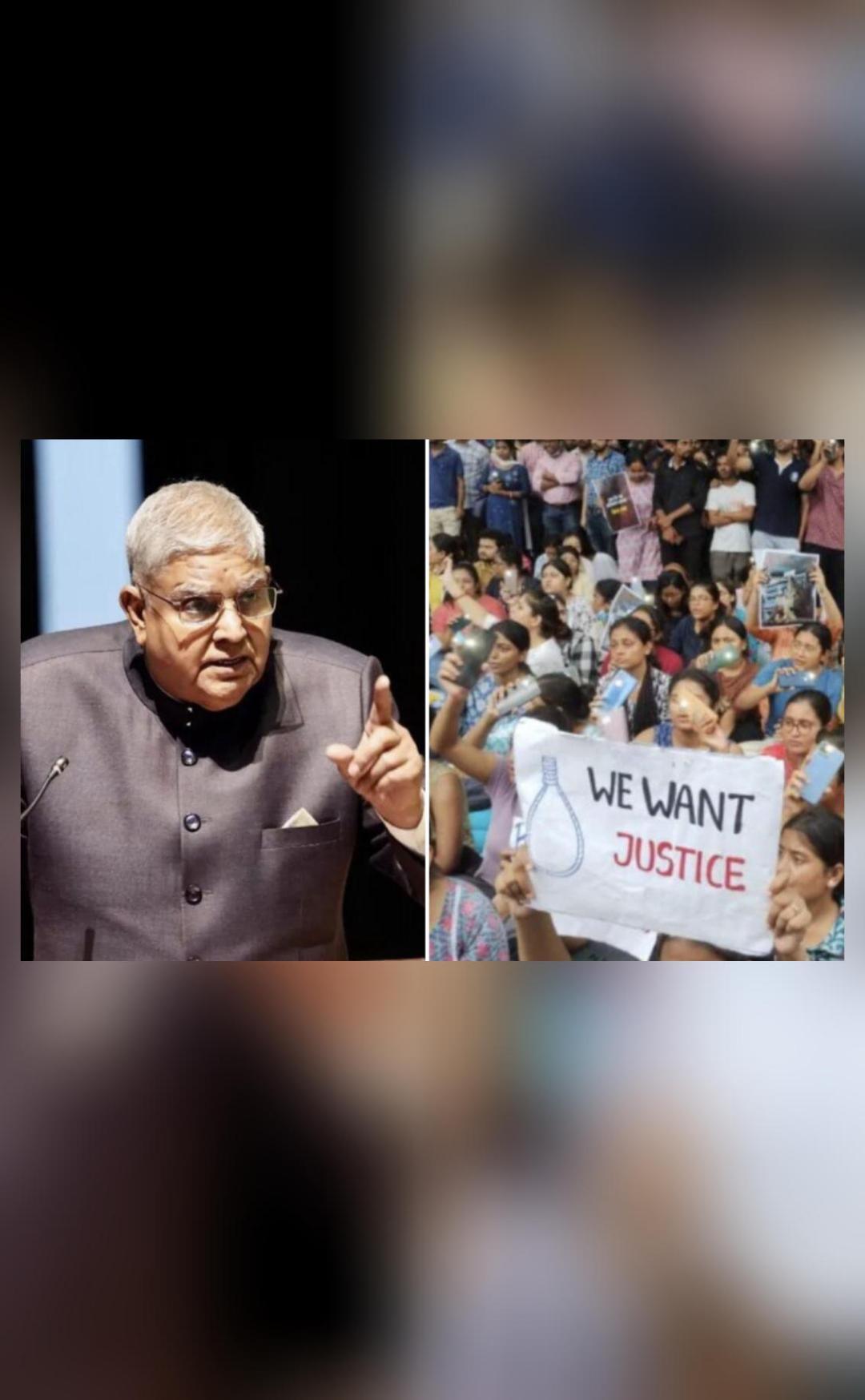 |
|
The statement by Vice President Jagdeep Dhankhar regarding the silence of certain NGOs on the alleged rape and murder case in Kolkata's RG Kar Hospital has sparked a debate about the role of civil society organizations in addressing such sensitive issues. Dhankhar's criticism, delivered during an event at AIIMS Rishikesh, highlights a complex issue that intertwines social responsibility, accountability, and the delicate balance between activism and due process.
Dhankhar's argument centers around the perceived lack of action from certain NGOs, who he claims are usually vocal on matters of public concern but have remained silent on this particular case. His statement, "Certain NGOs who are on road for drop of an incident…but they are in silence mode. We've to question them. Their silence is much worse than culpable act of perpetrators," suggests a strong sense of disappointment and even indignation. This criticism raises questions about the responsibility of NGOs in holding authorities accountable and advocating for victims in cases of violence and injustice.
The silence of NGOs, if it exists, can be interpreted in several ways. It's possible that they are awaiting a thorough investigation to avoid sensationalizing the case or jeopardizing the legal process. Alternatively, they might be prioritizing other issues or lacking resources to effectively address this specific case. However, Dhankhar's pointed criticism underscores the public expectation that NGOs should be vocal and proactive in tackling such sensitive matters. The question remains: to what extent are NGOs obligated to respond to every incident, and what are the ethical considerations involved in their advocacy?
